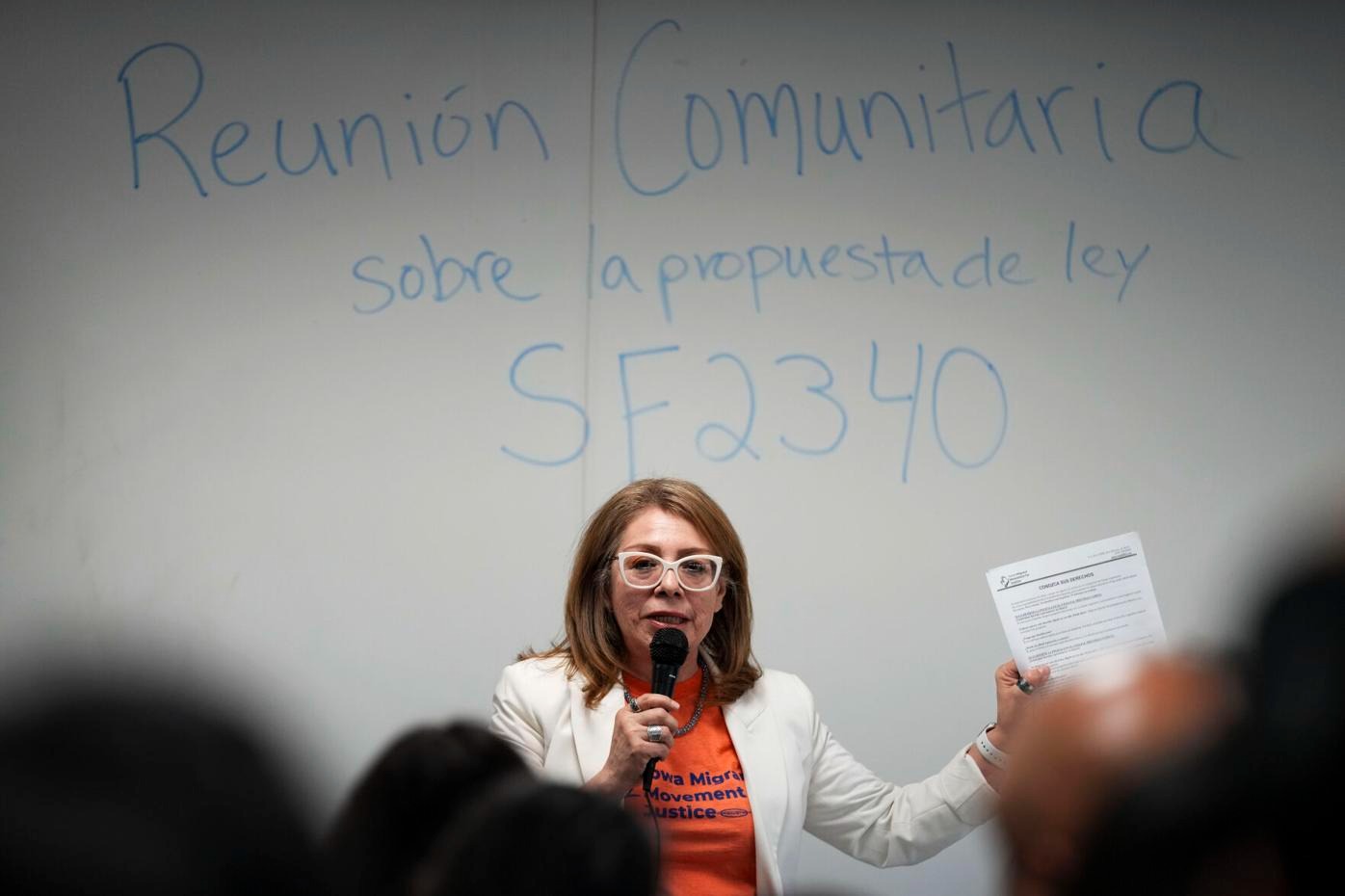The pending bill in Iowa that would authorize the state to arrest and deport certain migrants is causing distress among immigrant communities and prompting some individuals to question whether they should leave Iowa altogether.
This legislation, expected to be signed by Governor Kim Reynolds, would criminalize the presence of individuals in Iowa who have previously been denied admission to or removed from the United States. It resembles a portion of a Texas law currently tied up in court.

Migrants in Iowa wonder whether to leave (Credits: Los Angeles Times)
Latino and immigrant community organizations across Iowa are mobilizing to provide information and support to address concerns. They are organizing meetings, distributing informational materials, and seeking official statements from local law enforcement agencies.
During a recent community gathering in Des Moines, attendees raised questions about safety, police interactions, racial profiling, and whether they should consider leaving Iowa in light of the new legislation.
Fabiola Schirrmeister, a community organizer, expressed sadness over the erosion of trust between immigrant communities and law enforcement that this bill may cause. Des Moines Police Chief Dana Wingert emphasized that immigration status does not influence law enforcement’s efforts to ensure community safety.
Republican leaders in Iowa and nationwide have echoed the sentiment that every state shares responsibility for border security, criticizing President Biden’s immigration policies. This rhetoric has spurred state-level initiatives, such as the Iowa bill, aimed at addressing perceived gaps in federal immigration enforcement.

Iowa’s 2024 legislative session (Credits: Yahoo)
Despite concerns about the bill’s constitutionality and its potential impact on community-police relations, supporters argue that Iowa has a duty to protect its citizens and sovereignty.
Legal experts and law enforcement officials have raised practical questions about implementing the bill, including how law enforcement agencies would determine immigration status and facilitate deportations. Deportations are complex costly, and involve international negotiations with other countries.
Community leaders stress that immigration is a humanitarian issue and highlight the contributions of immigrant labor to Iowa’s economy. They reject the criminalization of immigrant communities and vow to continue advocating against such legislation.
As immigrant communities grapple with uncertainty and fear, organizations like Escucha Mi Voz are rallying support and encouraging individuals to stand firm in the face of adversity. They emphasize solidarity and resilience in the fight against punitive immigration policies.























